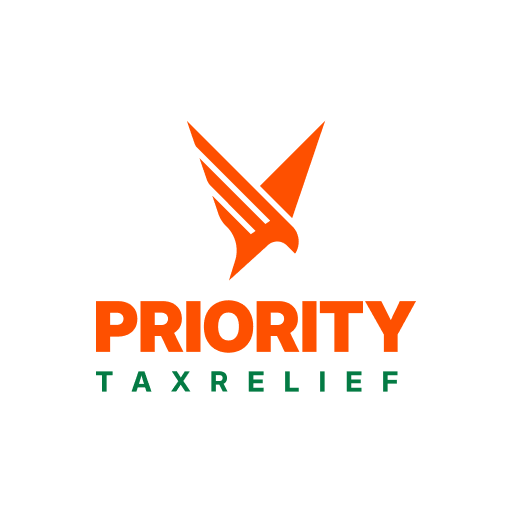Colorado State Income Tax: Rates and Who Pays in 2026
Unlike many other states with progressive tax structures, Colorado taxes income at a flat rate.

Many, or all, of the products featured on this page are from our advertising partners who compensate us when you take certain actions on our website or click to take an action on their website. However, this does not influence our evaluations. Our opinions are our own. Here is a list of our partners and here's how we make money.
Colorado is one of 14 states with a flat income tax. Its approach is different from how the federal government and most other states collect taxes.
Colorado state income tax rate
For tax year 2025, Colorado’s state income tax rate is 4.4%. This rate applies to income tax returns filed in 2026.

on Priority Tax Relief's website

on Alleviate Tax's website
Why is the tax rate higher than last year?
Due to the passage of a May 2024 Senate bill, Colorado's state income tax rate can be reduced based on excess state revenue until 2034. The state tax rate was reduced to 4.25% for the 2024 tax year, but there has been no indication that the tax rate will be reduced for the 2025 tax year.
Colorado's net excess revenue was reportedly $293.3 million in 2025, and the state income tax is only reduced if excess revenue is above $300 million (as outlined in the table below). Excess revenue first goes toward property tax exemptions.
Excess revenue | Tax rate reduction |
|---|---|
Above $300 million but not more than $500 million. | 0.04%. |
Above $500 million but not more than $600 million. | 0.07%. |
Above $600 million but not more than $700 million. | 0.09%. |
Above $700 million but not more than $800 million. | 0.11%. |
Above $800 million but not more than $1 billion. | 0.12%. |
Above $1 billion but not more than $1.5 billion. | 0.13%. |
Above $1.5 billion. | 0.15%. |
Source: Colorado General Assembly. | |
When are Colorado state income taxes due?
Colorado state income tax returns are due April 15, 2026, which mirrors the federal tax deadline. People who need more time to file get an automatic six-month extension, but they must pay at least 90% of their tax bill by April 15 to avoid incurring penalties and interest.
What is Colorado’s standard deduction?
Unlike some other states, Colorado does not have a state standard deduction. This is because a taxpayer’s federal taxable income — which already takes into account the application of the federal standard deduction or the taxpayer's itemized deductions — is generally used as a basis for calculating taxes owed to Colorado.
Filers who make over a certain amount of income, however, may also be asked to add back in a portion of their federal standard or itemized deductions when figuring their Colorado taxable income. See the Individual Income Tax Guide on the Colorado Department of Revenue’s website for more information.
Do I have to pay Colorado state income tax?
Colorado residents and part-year residents who file a federal tax return typically also need to file a Colorado state income tax return. Nonresidents who earn Colorado-sourced income may also have a filing obligation.
If your Colorado residency type is ... | Colorado taxes this part of your income |
|---|---|
Resident | All income from all sources inside and outside Colorado. |
Part-year resident | All income received while a resident, plus income from Colorado sources while a nonresident. |
Nonresident | Income from Colorado sources. |
Am I a resident for Colorado income tax purposes?
There are three types of residency statuses when it comes to Colorado state tax. They determine what portion of your income the state will tax.
» Need help? How to find a tax preparer near you

on Priority Tax Relief's website

on Alleviate Tax's website
Colorado tax credits
Colorado child tax credit (COCTC)
Colorado taxpayers with dependent children who were below the age of 6 in 2025 (i.e., born in 2020 or later) may be able to claim a refundable state-level child tax credit on their state tax returns. The credit is worth a maximum of $1,200 for the 2025 tax year. Taxpayers who made above $77,000 ($87,000 for joint filers) do not qualify.
Colorado earned income tax credit (COEITC)
The earned income tax credit is a refundable tax break for low-to-moderate income earners. Qualified Colorado filers can claim Colorado's state-level version that is modeled after the federal benefit. For the 2025 tax year, the COEITC is worth up to 50% of an eligible filer's federal earned income tax credit. To check eligibility, you can access the EITC assistant on the Colorado Department of Revenue's website.
Colorado sales tax
Colorado’s statewide sales tax is 2.9%. This tax applies to items such as the sale of prepared food and drinks, goods or merchandise, and hotel rentals or other accommodations. It doesn’t apply to things such as groceries or medications, which are tax-exempt.
Counties and cities can also levy a local sales tax on top of the state one, bringing the total sales tax up to 11.2% in some areas. According to the Tax Foundation, the average local tax rates across the state hover around 4.96%, placing Colorado in the top five states with the highest local average sales tax in the nation.
4 things to know about Colorado income tax
Tax software will do your state taxes, though sometimes for an extra fee. You can also check whether you qualify for an IRS Free File program that covers Colorado state tax.
If you can’t afford your tax bill, Colorado offers payment plans that you can set up online or over the phone.
Colorado also has an Offer in Compromise program, which might allow you to pay less than you owe.
If you’re curious about where your Colorado state tax refund is, check the status of your state refund.




